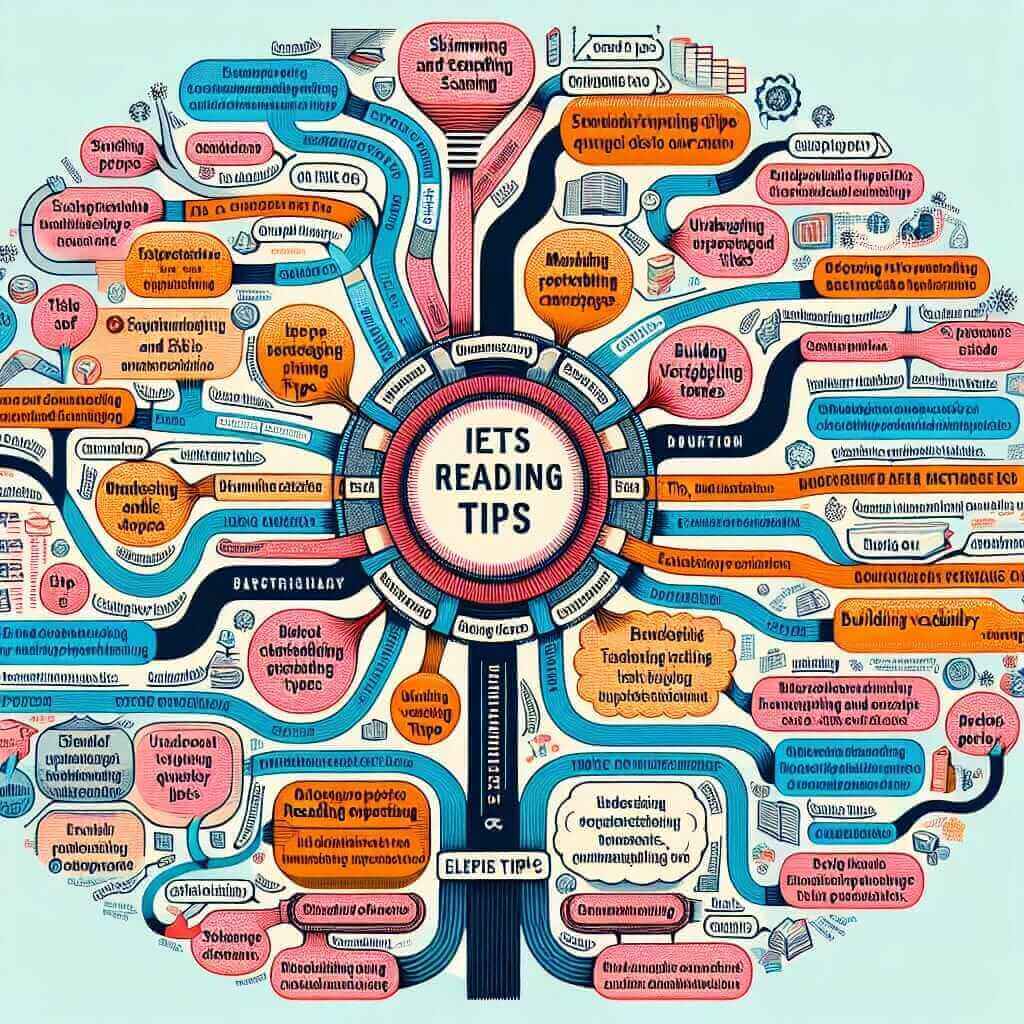Achieving a high score in the IELTS Reading section can be a daunting task for many test-takers. The reading section assesses your ability to comprehend and interpret academic texts, which requires both vocabulary knowledge and quick reading skills. In this article, we will delve into effective IELTS reading strategies, provide practical examples, discuss common mistakes, and offer guidance on how to practice these strategies.
Understanding the IELTS Reading Section
The IELTS Reading section consists of 40 questions based on three passages, and you have 60 minutes to complete it. Each passage is followed by a variety of question types, including multiple-choice, True/False/Not Given, matching headings, sentence completion, and short answer questions.
Key Strategies for High Scores
1. Skimming and Scanning
Skimming refers to quickly reading a passage to get a general idea of its content. Scanning involves searching for specific information without reading every word.
Example:
Consider a passage about climate change. Skim to get an overview, then scan for specific keywords like “carbon emissions” or “renewable energy.”
Application in IELTS:
Skim the passage to understand the main ideas, then scan for answers to specific questions.
2. Understanding Question Types
Different question types require different approaches. For instance, True/False/Not Given questions need careful attention to detail, while matching headings to paragraphs involves understanding the main idea of each paragraph.
Example:
For a multiple-choice question, read all the options first, then find the part of the passage that discusses the topic in question.
Application in IELTS:
Familiarize yourself with each question type and practice targeted techniques for each.
3. Managing Your Time
You have an average of 1.5 minutes per question, excluding the time needed to read the passages.
Example:
Allocate about 15 minutes per passage, including reading and answering questions.
Application in IELTS:
Use a timer during practice sessions to get used to the pace.
4. Building Vocabulary
A strong vocabulary is crucial for understanding complex texts. Focus on academic words and phrases typically found in IELTS passages.
Example:
Words like “analyse,” “evaluate,” “significant,” and “trend” are commonly used in academic texts.
Application in IELTS:
Create vocabulary flashcards and practice using new words in sentences.
5. Understanding Context and Inference
Sometimes, the answer isn’t directly stated in the text, and you need to infer meaning from context.
Example:
If a passage talks about “a negative impact on marine life,” the answer might infer pollution without directly stating it.
Application in IELTS:
Practice reading between the lines and understanding implied meaning.

Common Mistakes and Misunderstandings
-
Reading Every Word: Don’t spend time reading every word in the passage. Focus on key ideas and keywords.
-
Ignoring Time: Keep an eye on the time and avoid spending too long on one passage or question.
-
Misinterpreting Questions: Carefully read and understand what each question is asking before looking for the answer.
-
Overcomplicating Answers: Often, the simplest answer is correct. Avoid reading too much into the questions.
Practice Techniques
-
Regular Reading: Read English-language newspapers, journals, and articles regularly to improve your reading speed and comprehension.
-
Timed Practice: Use IELTS practice tests and simulate actual exam conditions with a timer.
-
Analyzing Mistakes: Review incorrect answers to understand your mistakes and how to avoid them.
-
Group Study: Discuss passages and questions with peers to gain different perspectives and strategies.
Conclusion
By employing the strategies mentioned above, you can enhance your ability to score high in the IELTS Reading section. Remember, practice is key. Regularly engage with English texts, take practice tests, and review your mistakes carefully. With dedication and the right approach, you’ll see significant improvement in your reading skills.
Feel free to leave your comments or questions below, and explore more resources on our website to further aid your IELTS preparation journey. Happy studying!